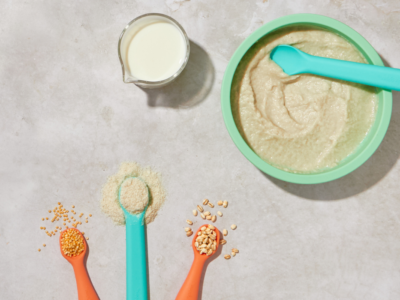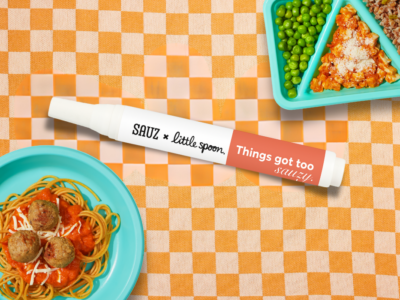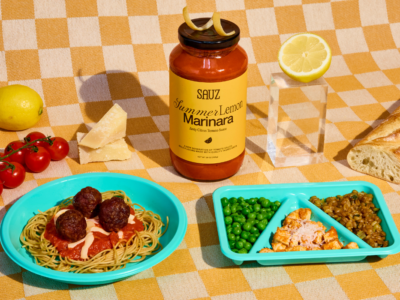In the early days and months of parenting, everything can seem like a mystery. There are just so many unknowns to discover and no matter how much research you do ahead of time, there is always something that takes you off guard. When it comes to those mysteries, few things are as nerve-wracking and thought-provoking as feeding time. Literally, who knew feeding a small human would be so darn hard. We’re breaking down the top 5 things you didn’t know about feeding a baby.
Breast milk flavor changes based on what you eat.
Before we go any further we need to say it: fed is best and any way that works for your family is the right way. It’s a little known fact that breast milk can taste different based on what you eat, and those different flavors have the ability to influence your baby’s palate. If you’re a breastfeeding parent, try mixing up your own mealtimes, your baby will get exposed to whatever you eat! Another fun fact: your body can adapt to the needs of your child, so when your LO has a cold, your immunity-boosting cells may actually increase to help offer this natural medicine right along with a midnight snack!
Babies know when they are full.
Sometimes, especially in the early days, it can seem that baby is hungry ALL. THE. TIME. and you may find yourself worried that you’re overfeeding or that baby will get sick from eating so much. Don’t worry, a baby can actually recognize their fullness and will tell you through their motions that they’ve had enough like changing positions, falling asleep or pushing the bottle away.
Babies can eat anything!
While you always hear about the introduction of foods like applesauce, banana and other mashed produce when it comes to starting solids, a baby can basically eat anything you do! When introducing solids, you can opt for a variety of veggies, fruits and even meats, as long as they’re in an age appropriate form. There are a few exceptions like honey, which can be harmful to babes under 1 or allergens if there’s a history in your fam. Remember, it’s best to check with your ped before introducing anything new.
Babies can start solids as early as 4-months-old.
Although many infants start experimenting with solid food around six months, some might be ready to start at just four months. Your baby will let you know when they’re ready by showing interest in what you’re eating, sitting up in a highchair or with little support, has good head and neck control and reaching for your food.
It can take up to 15 tries for your little one to accept a new food.Yep, taste buds are growing and developing right along with everything else your baby’s bod is up to— and this means food rejection is oftentimes a total fake out! Remember that everything you introduce to your baby is brand new and it can take time to get comfortable. If your baby rejects a new food, don’t stress. Try again a few days later, and keep trying until they bite (literally).



